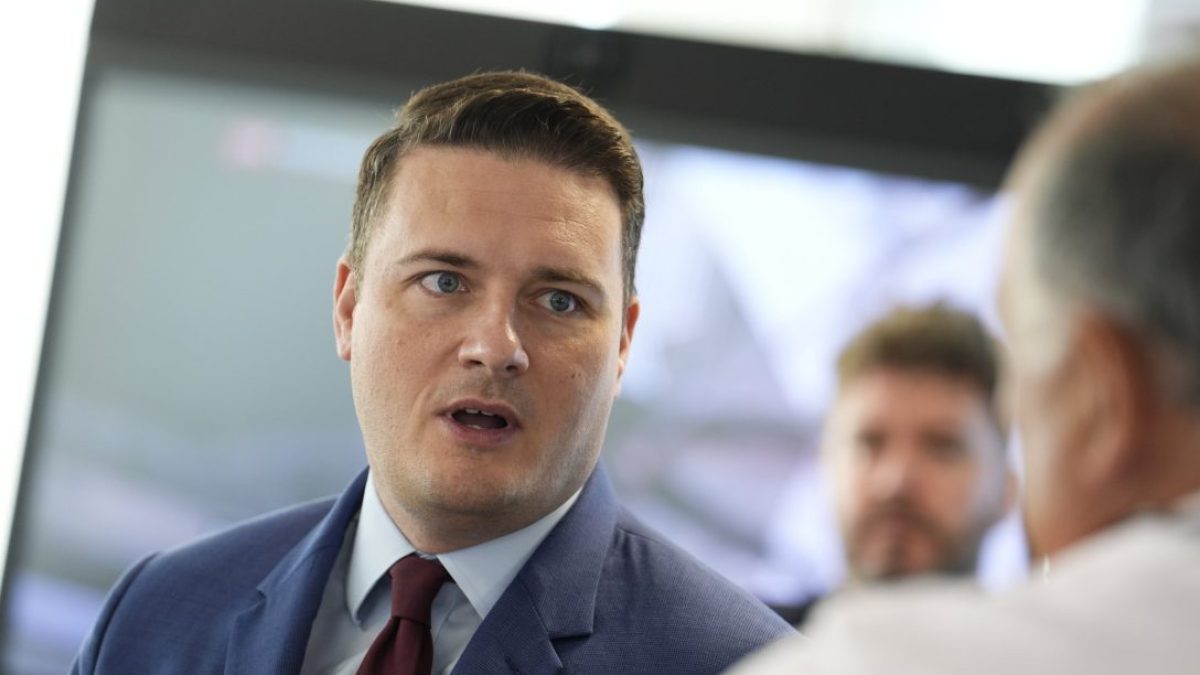Health Secretary Wes Streeting wants to bring more care for patients out of hospitals and into the community
The areas of England that will benefit from the first wave of new NHS “neighbourhood health services” are being revealed today.
Patients with multiple or long-term health conditions in 43 communities will be the first to be offered “end-to-end care” from teams of NHS doctors and nurses, as well as social care workers, dentists, mental health support and other health practitioners, depending on their medical needs.
The neighbourhood health teams, led by local GP practices, will offer patients bespoke care plans.
New FeatureIn ShortQuick Stories. Same trusted journalism.
This could include immediate treatment like antibiotics but also support for tackling the wider causes of their health issue, such as weight management services or health coaching at local leisure centres for type 2 diabetes.
Help for patients with chronic conditions
The neighbourhood health services, first unveiled in the NHS 10-year plan in July, are designed to end the “maze” of referrals to different specialists that patients with chronic or complex issues currently have to navigate.
The initiative is also part of a major strategic shift announced by Health Secretary Wes Streeting to keep more patients – particularly the elderly – out of hospital and treated in the community instead.
Areas with the lowest life expectancy or highest deprivation are being targeted in the first wave of 43 neighbourhood health services, but the Government hopes to eventually rollout the scheme nationwide.
By offering a more tailored, holistic approach to an individual’s issues, it is hoped that complications are spotted earlier, or prevented altogether, and that the frustration of patients being passed around the system can be avoided.
The teams will initially focus on supporting people with long-term conditions such as diabetes, arthritis, angina, high blood pressure, MS, or epilepsy, in areas with the highest deprivation.
The first areas where patients can access neighbourhood health teams
South and West Hertfordshire (Decorum and Hertsmere)
North East Essex
Ipswich and East Suffolk
Barking and Dagenham
Hillingdon
Lambeth and Southwark
Croydon
Walsall
Coventry
Shropshire
Leicestershire (West)
Nottingham City
North East Lincolnshire
Stockton
Rotherham
Bradford and Craven (Bradford South, Keighley and Airedale)
Sefton
Rochdale
Blackburn and Darwen
East Berkshire and Slough
Portsmouth
East Kent
East Surrey (Surrey Downs)
Bristol (South Bristol)
Cornwall and The Isles Of Scilly
Dorset Place (Weymouth)
West Essex
West Suffolk
Kensington/Chelsea and Westminster (Regents Health Westminster, Brompton South West London)
East Birmingham
Solihull
Herefordshire
Sunderland
Doncaster
Wakefield
Leeds (Hatch, South, East)
St Helens
Stockport
Buckinghamshire (North, High Wycombe, Marlow, Beaconsfield)
East Sussex (Hastings and Rother)
Woodspring
Morecambe Bay
Fenland, Peterborough and East, Peterborough Partnerships
Eventually, the Government hopes to have a nationwide network of neighbourhood health centres that will bring hospital-based services, such as diagnostics, post-operative care and rehabilitation, into the community.
NHS centres could offer debt advice
They could also offer services like debt advice, employment support and smoking cessation or weight management services.
The initial rollout to 43 areas is being funded by a £10m investment – to help GPs appoint people to lead the teams.
Neighbourhood health teams are expected to include existing community nurses, hospital doctors, social care workers, pharmacists, dentists, optometrists, paramedics, social prescribers, local government organisations and the voluntary sector.
It is also expected that patients’ care plans would be co-ordinated on the NHS App.
Under the new voluntary neighbourhood health contracts, GPs can choose to be part of either a single neighbourhood or multi-neighbourhood provider. A single neighbourhood will deliver enhanced services for around 50,000 people – while a multi-neighbourhood provider will serve around 250,000 people.
Data from the Department of Health and Social Care shows that a community health scheme in London lowered A&E admissions by 7 per cent, and hospital admissions by 10 per cent, in its first year of operation.
A similar initiative in Cornwall lowered unplanned GP appointments by 7 per cent, increased the likelihood of vaccination by 47 per cent, and cancer screening and NHS health checks by 82 per cent.
Ruth Rankine, primary care director and neighbourhood lead at the NHS Confederation, said: “This programme provides a vital opportunity to build on the strengths of local partnerships, community assets, and frontline innovation and we look forward to supporting systems and neighbourhoods in sharing learning, scaling best practice, and ensuring that improvements are inclusive, sustainable, and driven by the voices of local people.”
Daniel Elkeles, chief executive of NHS Providers, said: “This is a pivotal moment as the NHS nationally embraces what the NHS locally has already started –transforming services to provide tailored healthcare to the people who need it most in their homes and local communities.”
Rachel Power, chief executive of the Patients Association said: “Tackling health inequalities through the locations of the first neighbourhood health services is a strategic opportunity to address the unjust experience many patients have of the health system because of where they live.
“Locating services in more convenient places for patients can mean earlier support, quicker diagnosis, and fewer barriers to accessing vital treatment.
“We call on these sites to begin by committing to genuine patient partnership by ensuring communities have meaningful roles in the design and delivery of services they are placed to serve, listening to local voices and shaping services around people’s real needs.”
Vic Rayner, CEO of the National Care Forum, said: “It is crystal-clear that this fundamental shift from acute to community services can only be achieved with social care at its heart.
“For these pilots to support a meaningful widespread transformation, it must lay the foundations for how to commission, fund and develop the strategic partnerships that will shape the neighbourhoods of the future.”
